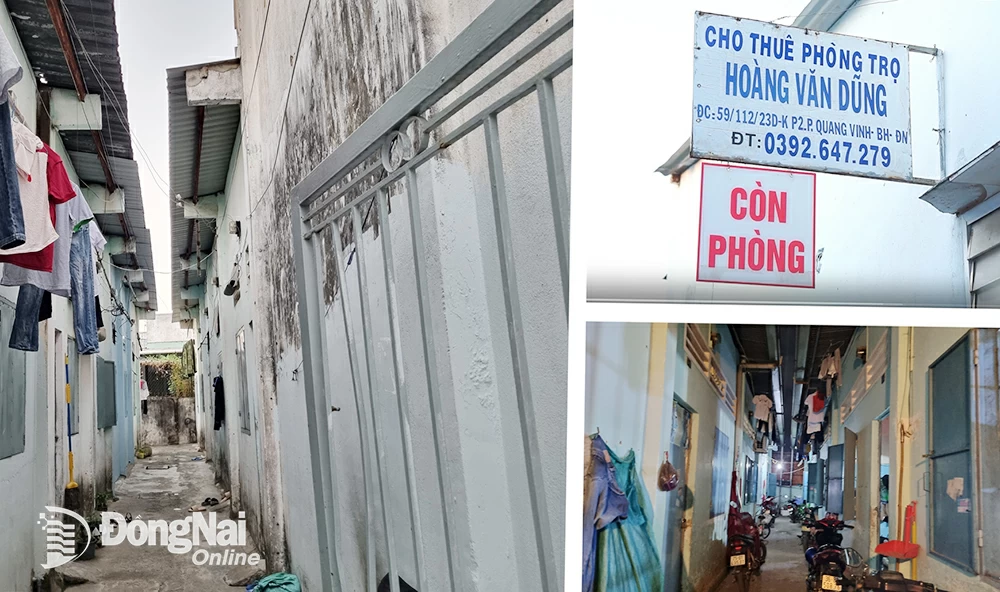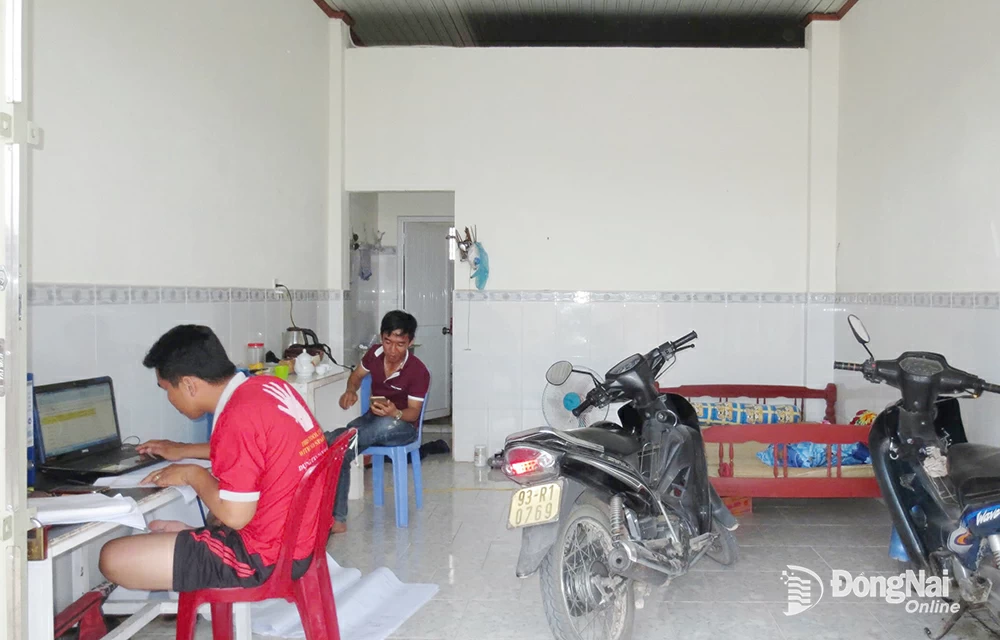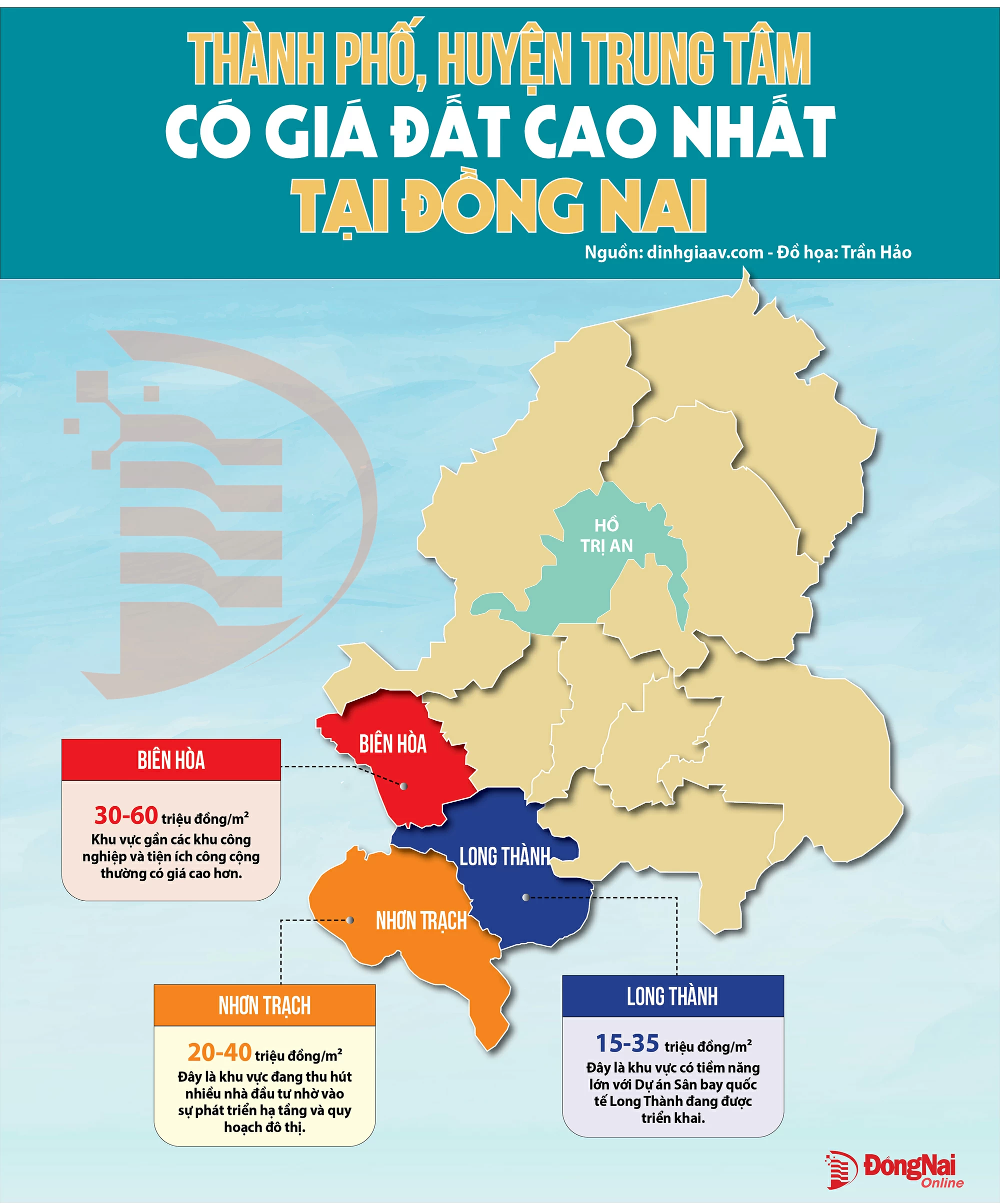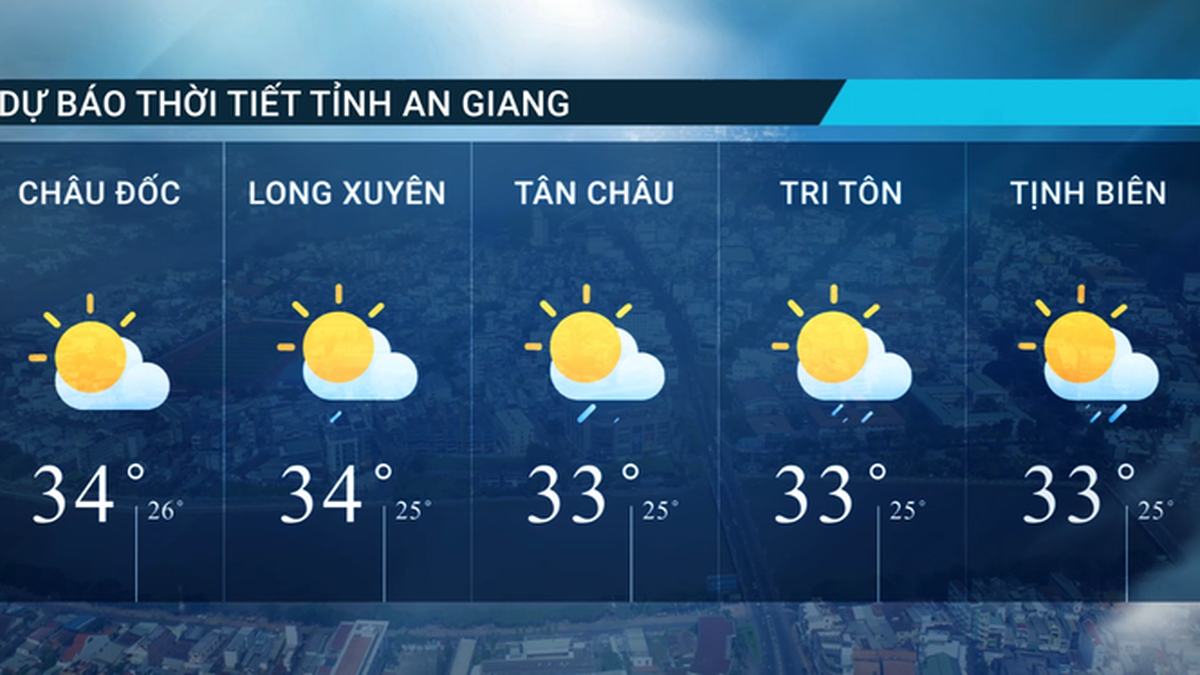 |
 |
Domestic and foreign enterprises are continuously expanding their operations, leading to a large demand for recruitment. This makes it easier for workers to find jobs, especially in the industrial sector, creating a great motivation for workers to go to industrial cities to improve their income and quality of life. However, since the Covid-19 pandemic, tens of thousands of workers have quietly left their boarding houses to return to their hometowns.
 |
 |
| Since the Covid-19 pandemic, the situation of workers leaving large industrial zones has been widespread. In Dong Nai , in the past 2-3 years, many people have returned to their hometowns to find new jobs. Photo: Thanh Hai |
During the Covid-19 pandemic, history has recorded images of workers in urban areas and industrial parks in the Southeast provinces and cities returning to their hometowns due to many businesses closing and switching to social distancing. However, in the years after the pandemic, not many workers returned to urban areas, in which statistics in 2023 showed that the rate of immigrants to Dong Nai increased slowly.
For the first time, Dong Nai and some provinces and cities in the Southeast are no longer considered “promised lands” as more and more industrial parks are springing up in many localities. Workers tend to choose to work near their hometowns to reduce costs for food, living, and lodging, etc.
According to Ms. Bui Thi Bich Thuy, Vice President of the Dong Nai Provincial Labor Federation, after the Covid-19 pandemic, the situation of workers leaving large industrial parks occurred on a large scale. In the period of 2021-2022, it is estimated that about 60-70 thousand workers, mainly from the Central and Northern provinces, working in the textile, footwear, mechanical industries... withdrew from the province's labor market.
 |
| Many rows of rented rooms in Dong Nai are deserted as workers quit their jobs and return to their hometowns. Photo: Bich Nhan |
By the 2023-2024 period, although the economy is gradually recovering, many businesses are still having difficulty recruiting, and workers continue to face the problem of "settling down" in industrial parks. This is also the situation not only in Dong Nai but also in Ho Chi Minh City, Binh Duong, Ba Ria - Vung Tau ... localities that have strengths in industrial development and attracting workers.
Many people choose to return to their hometowns or switch to more flexible, freelance jobs. Many people left their hometowns to Dong Nai to work as workers and live in rented houses when they were young. They got married and had children, and now, in their old age, they still have to live in rented houses. Ms. Le Thi Thiec (56 years old, from An Giang province), who lives in Long Binh ward, Bien Hoa city, is a typical case. With no qualifications, no means of transportation and poor health, for many years, Ms. Thiec worked as a sander at a wood workshop near her rented house. With an income of 4-5 million VND/month, Ms. Thiec "chooses her rice according to her fish sauce" to cover living expenses as well as buy medicine.
“But that was before, but since the Covid-19 pandemic and now the trade tensions between countries, the factory is in trouble, almost dissolved, I lost my job, lost my income. Meanwhile, every month I have to go back for a check-up to get medicine to treat congenital heart disease, high blood pressure... Therefore, I can only rely on the 'subsidy' of my two children who are working as factory workers" - Mrs. Thiec confided.
What is more worrying is young families with small children. Many families are in a situation where the husband or wife is unemployed and the economic burden is not small. From then on, rent, living expenses or buying milk for children must be cut to the maximum. Despite "tightening their belts", the family of Mr. Truong Minh Dao, from Ca Mau province, who rents in Long Binh ward, Bien Hoa city, still cannot avoid the situation of "borrowing first, paying later".
Mr. Dao sighed: “My wife is a factory worker, fortunately still working with an income of 7 million VND/month. As for me, I work as a construction worker, unemployed for many months, so the whole family of 4 depends on my wife's small salary. Due to the world trade tension due to the US's reciprocal tax policy, since mid-April 2025, my wife's garment company with more than 10,000 employees has announced layoffs due to low orders. Family life has become more difficult because of that, perhaps, I will have to consider returning to my hometown."
 |
 |
| Many people choose to return to their hometowns or switch to more flexible, freelance jobs. Photo: Thanh Hai |
Unemployed! Some people choose to stay and switch to street vendors or online sellers to make a living. Those considered “old workers” who cannot find another way choose to return to their hometowns. Since then, the boarding houses have fallen into a state of being empty of tenants.
Changshin Vietnam Co., Ltd. has 3 factories in Thanh Phu Industrial Park (Vinh Cuu District), Loc An - Binh Son Industrial Park (Long Thanh District) and Tan Phu Industrial Park (Tan Phu District) with a total workforce of about 42,000 people. Of which, the number of workers from other provinces is quite large, so the demand for housing is very high.
That is the reason why Mr. Luong Ngoc Nhe, residing in Thanh Phu commune, Vinh Cuu district, has invested heavily in running 150 rooms for workers to rent for many years. But in the past few years, Mr. Nhe was quite shocked when the number of vacant rooms gradually increased.
“150 rooms, at times, 30-50% of the rooms are empty. People constantly check out, which makes me dizzy because I still have to pay bank interest when investing in the boarding house business. Not only me, most of the boarding house owners in the industrial parks are in the same situation,” Mr. Nhe said sadly.
 |
| Many families find themselves in a situation where one spouse is unemployed and the economic burden is not small. Photo: Thanh Hai |
When tenants check out, it means that landlords have more vacant rooms. The boarding house of Ms. Huynh Thi Kim Phung, in Buu Long ward, Bien Hoa city, has only 16 rooms, but 8-9 of them are vacant. To attract and retain tenants, Ms. Phung decided not to increase the price and not to take deposits, but the tenants still checked out.
Ms. Phung said: "There are people who have rented a room and "returned to their hometowns" since Tet 2025 and still haven't come back because they don't have a job."
The rent has not increased, even continuously reduced, but many boarding houses are still empty. The 3 boarding houses of Mr. Hoang Van Dung, Quang Vinh Ward, Bien Hoa City are in a similar situation. Since April, Mr. Dung has reduced the rent by 200-300 thousand VND/room but still 1/3 of the rooms are empty.
“There are rooms that have been unoccupied for nearly half a year. In addition, recently many people have been returning to their hometowns or changing jobs. Therefore, my income has also decreased sharply,” Mr. Dung complained.
 |
 |
| Workers’ lives are difficult, many of whom have been living in the industrial capital of Dong Nai for decades still cannot escape renting. Their entire families have to live in cramped, old rented rooms. Photo: Bich Nhan |
According to the law of the labor market, when provinces have developed industries and services, workers will come to them. But when the hometowns of these workers develop industrial parks and need workers, they are willing to leave the "promised land" to seek stability in their hometowns, where the cost of living is lower and the family support network is stronger.
After more than 10 years of working hard in Binh Duong province, 2 years ago, Ms. Mai Thi Hoa, from Ha Nam province, decided to pack up and return to her hometown. According to her analysis, income in big cities may be a bit higher but it is difficult to save because of the high cost of transportation, food, rent, etc.
“I saved all year, but when I went back to my hometown for Tet at the end of the year, I spent it all, while the benefits and bonuses of businesses in the province were quite attractive. Therefore, I decided to “leave the city” and return to my hometown to work, both to be close to my relatives and not have to pay rent,” Ms. Hoa shared.
Although Ms. Hoa's income is about 2 million VND/month lower than when she worked in Binh Duong, in return, she gets to live with her family. The cost of living is only 1/3 of what it was before, so the pressure is somewhat reduced. Most importantly, Ms. Hoa does not lose a large amount of money each time she returns to her hometown at the end of the year.
Ms. Thuy Dung, who works at Linh Trung Export Processing Zone, Ho Chi Minh City, decided to pay off her rented room and return to her hometown in Binh Thuan province to stabilize her job and start a family after 5 years of working abroad. Ms. Dung admitted that the income in the city is higher than in her hometown, life is vibrant and bustling with many activities and entertainment services... but returning to her hometown is still the best option.
 |
"I decided from the beginning that I would work far away just to accumulate money, experience and gain experience, and if I wanted a stable life, I would return to my hometown," said Ms. Dung.
More than the story of “bread and butter”, one of the main reasons why workers decide to leave industrial parks in big cities to return to their hometowns is the pressure to buy a house. However, real estate prices in Dong Nai are not cheap. According to analysis from dinhgiaav.com in the last months of 2024, housing prices in Dong Nai usually fluctuate from 1.5 to 5 billion VND, depending on area and location.
Houses near industrial parks and with modern designs are often more expensive. Apartments in new projects in Dong Nai cost from 25-50 million VND/m2. Projects with convenient locations and full amenities often attract many customers, while competition in Ho Chi Minh City is even fiercer. With this price, many workers say that even if they “tighten their belts”, they do not dare to dream of buying a house.
 |
 |
Source: https://baodongnai.com.vn/media/megastory/202505/loat-megastory-khat-lao-dong-giua-thu-phu-cong-nghiep-dong-nai-bai-3-song-ngam-viec-lam-va-noi-day-dut-di-hay-o-e0d130f/
































































































Comment (0)